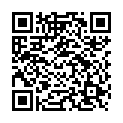|
|
|
| Module code: WIBAS-140F |
|
|
2U (2 hours per week) |
|
2 |
| Semester: 1 |
| Mandatory course: yes |
Language of instruction:
French |
Assessment:
Written exam
[updated 30.07.2021]
|
WIBAS-140F (P450-0042) Industrial Engineering, Bachelor, ASPO 01.10.2007
, semester 1, mandatory course
|
30 class hours (= 22.5 clock hours) over a 15-week period.
The total student study time is 60 hours (equivalent to 2 ECTS credits).
There are therefore 37.5 hours available for class preparation and follow-up work and exam preparation.
|
Recommended prerequisites (modules):
None.
|
Recommended as prerequisite for:
|
Module coordinator:
Prof. Dr. Thomas Tinnefeld |
Lecturer:
Lehrbeauftragte (exercise)
[updated 25.03.2011]
|
Learning outcomes:
After successfully completing this module, students will have mastered the basic grammatical structures of the French language. They will be able to translate simple French business texts into German, both orally and in writing. They will be able to understand and analyze easy job-related French economic texts. They will have mastered simple oral French expressions and phrases in situations relevant to their profession.
[updated 30.07.2021]
|
Module content:
1. Review of basic grammar structures:
• Verbs
• Regular and irregular verbs
(tenses, etc...)
• Nouns
• Personal pronouns
• Relative pronouns
• Possessive pronouns
2. Using grammatical structures in exercises (written)
3. Version exercises (written and oral)
4. L’ entreprise: Présentations, clients, organigramme, accueil des visiteurs
5. Situations de communication:
• rencontres professionnelles
• présentations au téléphone
• présentations de produits
[updated 30.07.2021]
|
Teaching methods/Media:
This module will take place in the language lab. Televisions, transparencies/slides and computers will be used.
[updated 30.07.2021]
|
Recommended or required reading:
• Germann : Grammaire française (with exercises).
• Easy texts about regions, economics from French newspapers (from didactic magazines such as „Revue de la presse“ u. „Ecoute“).
• Mitchell, Margaret: Pour parler affaires.
• Mitchell, Margaret: Pour parler affaires (workbook).
[updated 30.07.2021]
|

